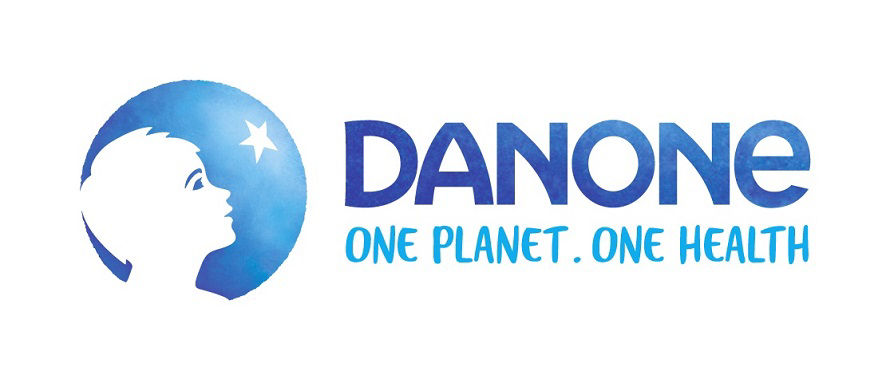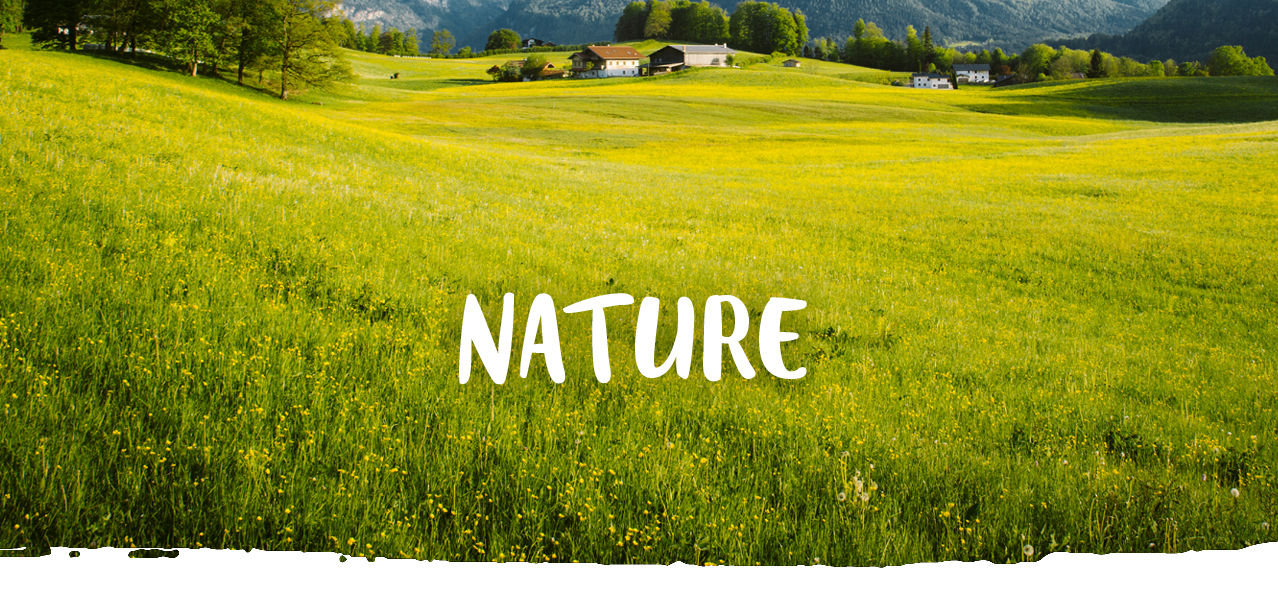
HOW WE ARE DELIVERING ON NATURE

To deliver on our health mission, we depend on nature, a core pillar of our Danone Impact Journey.
We recognise that food has a critical role to play at the forefront of many environmental threats and solutions, from climate change to biodiversity and water protection. Our Impact Journey helps set out our roadmap for curbing our GHG emissions in line with 1.5°C, by leading on the development of regenerative agriculture and shifting to a circular packaging system while cutting food waste.
From pioneering lower carbon options throughout our portfolio, to supporting the development of Deposit Returns Schemes (DRS), we’re always reviewing how we can make positive changes with our supply chain and beyond. We know we need to work together to build a more sustainable food system.
Reducing Green House Gas (GHG) Emissions
Decarbonisation is key to building climate-resilient supply chains and meeting growing customer and consumer demand for lower-carbon products. Our supply chains are feeling the impacts of climate change – with droughts and extreme heat impacting agriculture.
Our approach
We’ve tracked global GHG emissions since 2008 and are committed to net zero by 2050. Our 1.5°C-aligned Science Based Targets equate to a 34.8% emissions reduction by 2030 vs. 2020, and we were among the first companies to have a Forest, Land and Agriculture (FLAG) target approved. In 2023, we became the first major food company to set a methane-specific GHG reduction target: aiming for a 30% methane reduction from our global fresh milk supply by 2030.
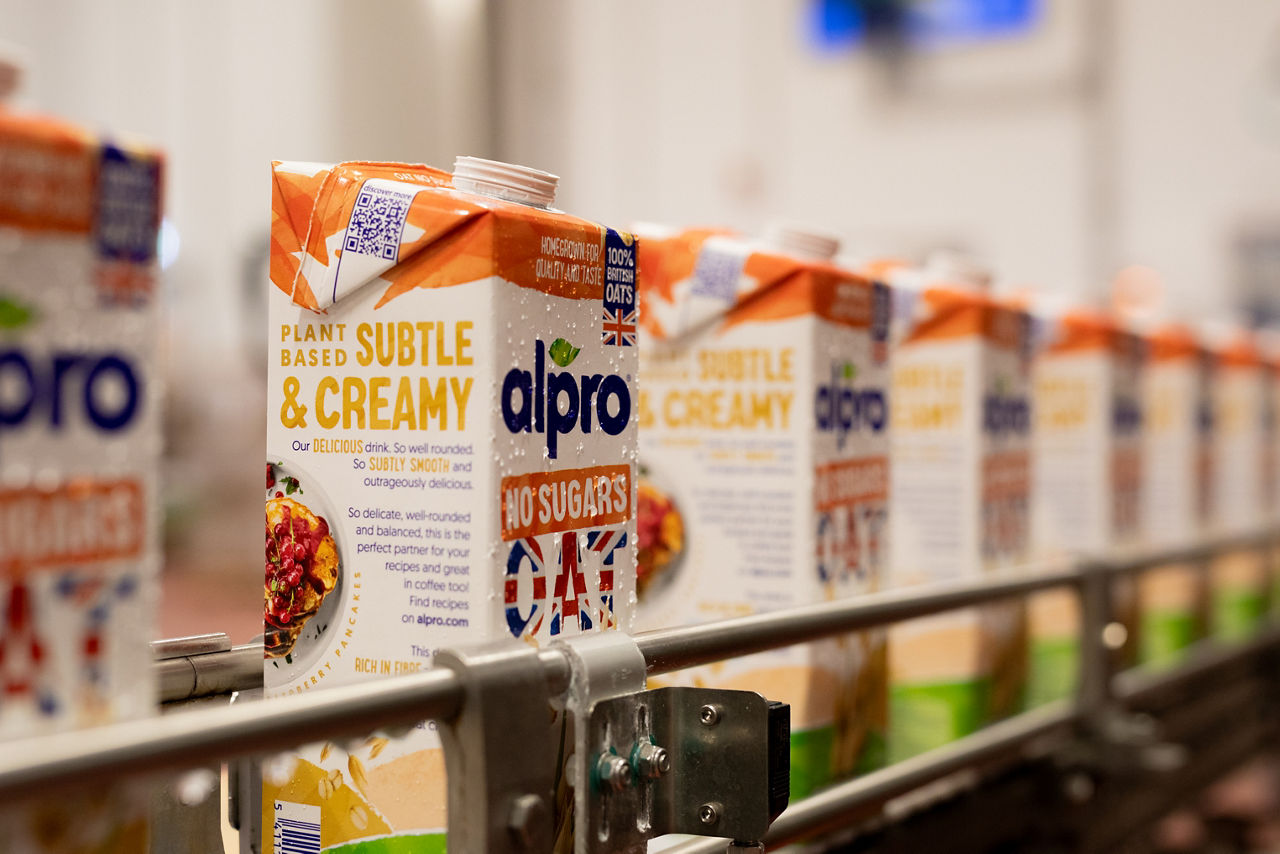
A snapshot of our work
In 2023 Danone published its global Climate Transition Plan to set out how we will achieve near-term 2023 carbon reduction targets across our operations and supply chain, as well as outline how we’ll reach net-zero by 2050. We are taking action across all emissions scopes. For example, we use 100% renewable electricity across all UK & Ireland factories and are increasing energy efficiency. In 2025, we switched to making our most popular Alpro Oat Drink from 100% British Oats, supporting local agriculture while at the same time cutting GHG and water usage through a new production process.
And we continue to innovate when it comes to our packaging. All our evian and Volvic bottles are made from 100% rPET, saving 7,000 tonnes of virgin plastic and over 10,000 tonnes CO₂ annually. In healthcare, we reformulated some of our tube feeds to increase plant-based proteins, reducing GHG emissions by 18%.
READ OUR FOCUS ON NATURE TO FIND OUT MORE ABOUT HOW WE'RE REDUCING GHG EMISSIONS
PIONEERING AND SCALING REGENERATIVE AGRICULTURE
Agriculture is central to our business—and is at the heart of many global challenges like climate change, biodiversity loss, and soil degradation. Regenerative farming can help restore nature, improve animal welfare, and support resilient, profitable farms.
Our approach
Since 2017, we’ve supported farmers globally in transitioning to regenerative practices. Our Regenerative Agriculture Framework focuses on:
- Empowering farmers
- Protecting soil, water, and biodiversity
- Enhancing animal health and welfare
We’ve launched 25 agriculture projects in 20 countries and share insights through our Regenerative Agriculture Knowledge Centre. We’re also committed to tackling deforestation, ensuring we have verified deforestation and conversion-free (DCF) supply chains, focussing on high-risk materials like palm oil, soy and cocoa.
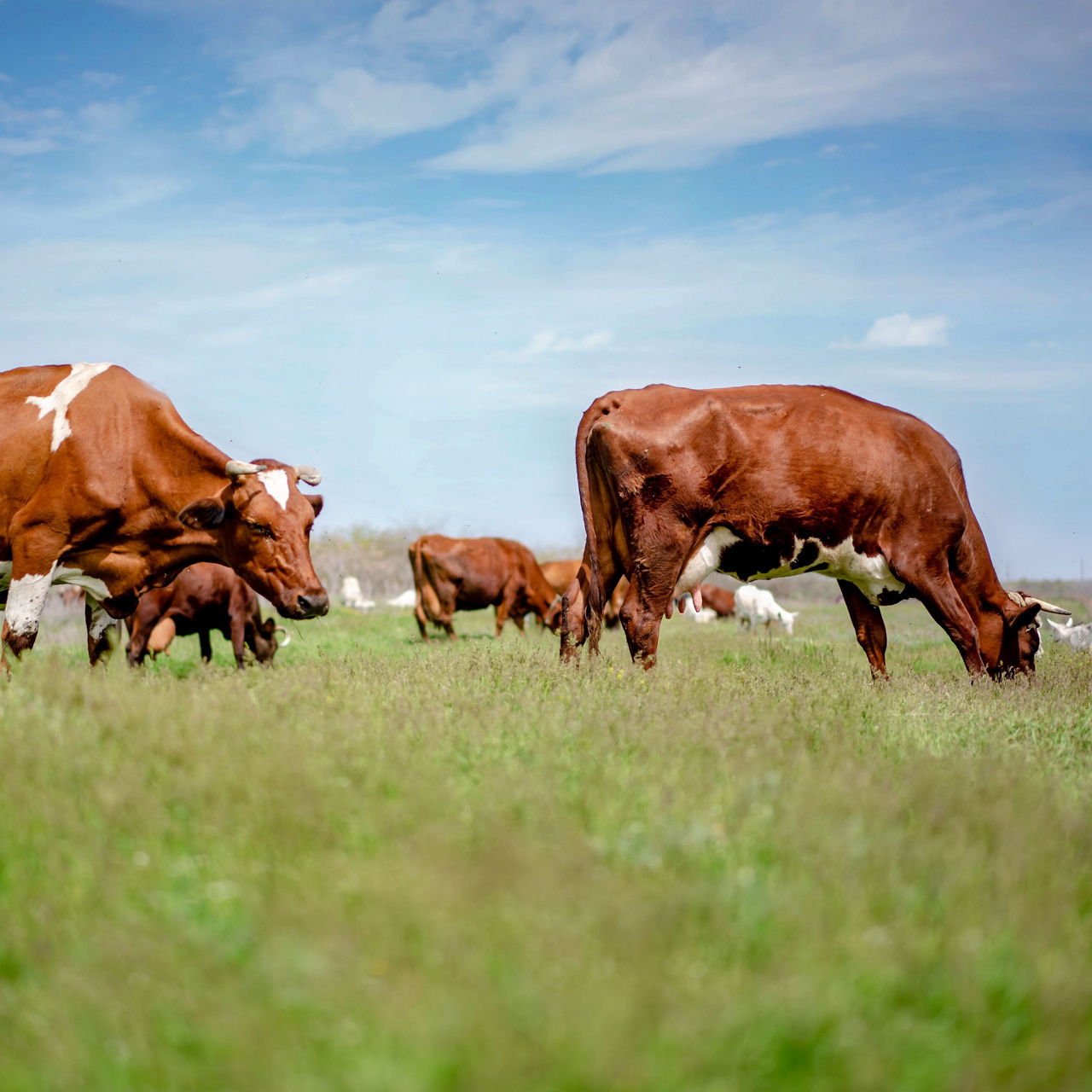
A snapshot of our work
We source dairy ingredients for our baby formula milk products from a number of Irish dairy suppliers. We are working closely with them to help cut carbon emissions through measures like management of manure and fertiliser use, and grazing practices. In Europe we’re supporting French farmers through a project called ‘Les Deux Pieds sur Terre’, meaning ‘Both Feet on the Ground’. The project supports farmers by advising them on how to measure the carbon footprint of their milk, as well as how to reduce it.
Since 2013 we’ve had a traceability system in place for palm oil to track where it is coming from. As of 2024 we achieved 100% palm oil traceability to mill level and 98% to plantation level, helping us to ensure it is produced sustainably and ethically.
READ OUR FOCUS ON NATURE TO FIND OUT MORE ABOUT HOW WE'RE PIONEERING AND SCALING REGENERATIVE AGRICULTURE
Packaging protects food, preserves product quality and reduces food waste—but it also accounts for 14% of our UK & Ireland carbon footprint. We use over 60,000 tonnes of packaging a year, so reducing its impact and keeping it out of nature is essential to achieving our goals.
Our approach
We’re working to cut our packaging footprint, embed circular and low-carbon design into product development, and advocate for better recycling systems. We're a founding signatory of the UK Plastics Pact and a supporter of Ireland’s Repak Plastic Pledge. And we work with Re‑Turn, the Irish Deposit Return Scheme (DRS) Administrator, to ensure the smooth running of DRS in the Republic of Ireland. Danone also plays an active role in the Business Coalition for a Global Plastics Treaty to drive and accelerate progress on plastics circularity and curb plastic pollution on a global scale.
A snapshot of our work
We recognise that there are pros and cons of different packaging materials in different formats, depending on many factors. So we work to develop our packing based on the right material for the product, removing and reducing unnecessary and virgin plastic packaging, and designing for recyclability. For example, our Actimel bottles are now label-free, with the brand name, vitamins and allergens embossed directly onto the bottle. This saves 135 tonnes of plastic and 516 tonnes CO₂e annually. Since early 2025, all our evian and Volvic bottles have been made from 100% recycled PET*.
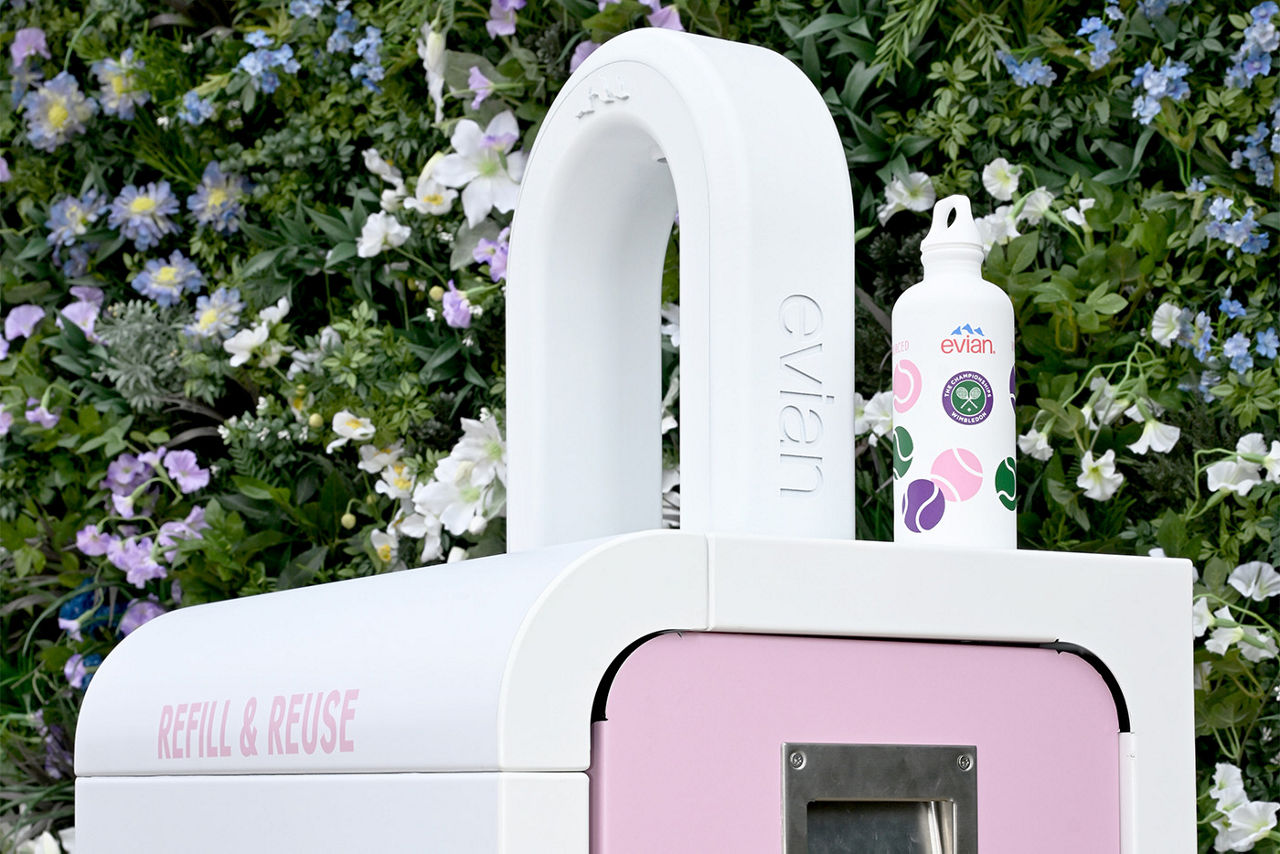
We support wider shifts in packaging infrastructure and behaviour. We supported the launch of Deposit Return Scheme (DRS) in Ireland in 2024, which boosted collection rates to 73% in six months. We’ve been encouraging refill and reuse behaviour by launching our refill solution for evian natural mineral water at Wimbledon. And we have developed tailored materials to educate healthcare professionals on how to recycle our medical nutrition packaging.
CUTTING FOOD WASTE ACROSS OUR VALUE CHAIN
Food waste contributes to climate change and squanders resources like water, energy, and land. In the UK alone, 9.5 million tonnes of food is thrown away each year. Reducing food waste is essential not only in delivering cost savings for businesses and individuals, but also for tackling food poverty.
Our approach
We’re committed to halving food waste by 2030, in line with the Sustainable Development Goal 12.3. As part of WRAP’s Food Waste Reduction Roadmap, we follow the ‘target, measure, act’ approach and prioritise prevention of food waste across our supply chain. Where waste does occur, we redistribute surplus through partners like FoodCloud, FareShare, and Company Shop, or where this is not possible use it for animal feed or anaerobic digestion.
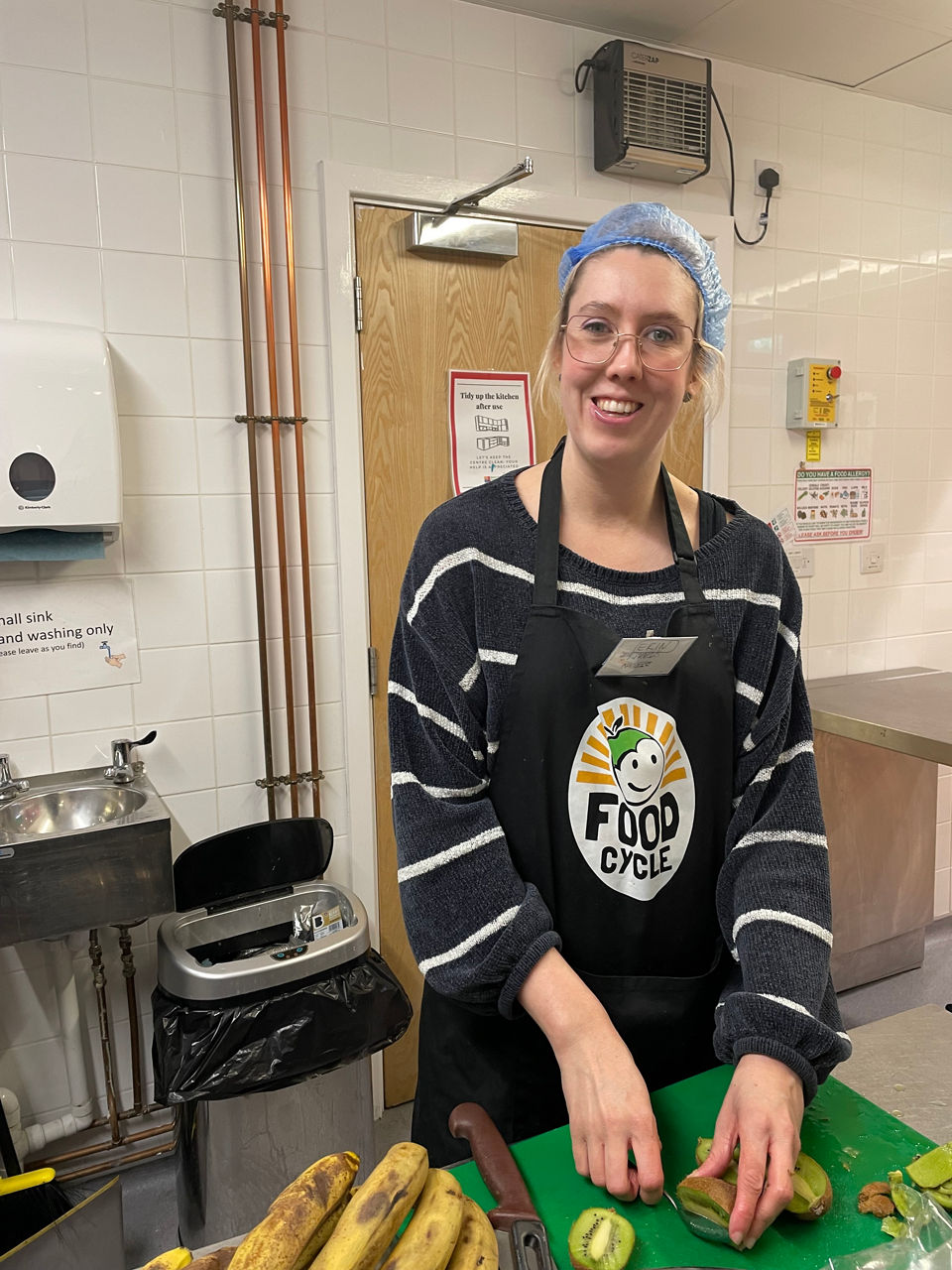
A snapshot of our work
Globally our ‘Battle Against Waste’ programme has been rolled out across our end-to-end supply chain, in order to prevent food waste being generated.
In the UK we have donated 3,158 tonnes of surplus food since 2017— that’s the equivalent of 7.5 million meals – and been recognised as one of FareShare’s leading food surplus donation partners. In Ireland we have redistributed the equivalent of almost 500,000 meals to charities and community groups, through our partnership with FoodCloud since 2023.
We are also helping consumers waste less at home. We have switched from ‘use by’ to ‘best before’ dates across our Activia, Actimel and Oykos yogurts, as well as our Alpro products and some of our Light & Free and GetPRO ranges. We work with Too Good To Go to help consumers understand that food past its best before date can still be good to eat. Our packaging features their logo, and we partner with retailers to raise awareness through online and in‑store campaigns.
READ OUR FOCUS ON NATURE TO FIND OUT MORE ABOUT HOW WE'RE CUTTING FOOD WASTE ACROSS OUR VALUE CHAIN
PRESERVING AND RESTORING WATERSHEDS
Water scarcity may not seem like a direct problem in the UK & Ireland, but the international supply chains we rely on are impacted by drought and water scarcity.
Roughly 90% of our water footprint worldwide is linked to agriculture and our regenerative approach to farming – which involves sustainable irrigation and improving the ability of soil to store water – is critical to help address this.
Our water brands have decades of experience in water stewardship. In 1992, we co-founded the Association for the Protection of the evian Mineral Water Impluvium (APIEME) through which we work with the community to promote conservation. In the UK & Ireland, we work closely with the Environment Agency to protect our Harrogate Spring Water source. And across our production sites, we are deploying the 4R approach to reduce, reuse, recycle and reclaim the water we use. For example, our Liverpool healthcare manufacturing site reduced water use by 31% in 2023.
For more information on how Danone is managing its impact on water – see our 2024 Danone water policy: danone-water-policy-2024.pdf
